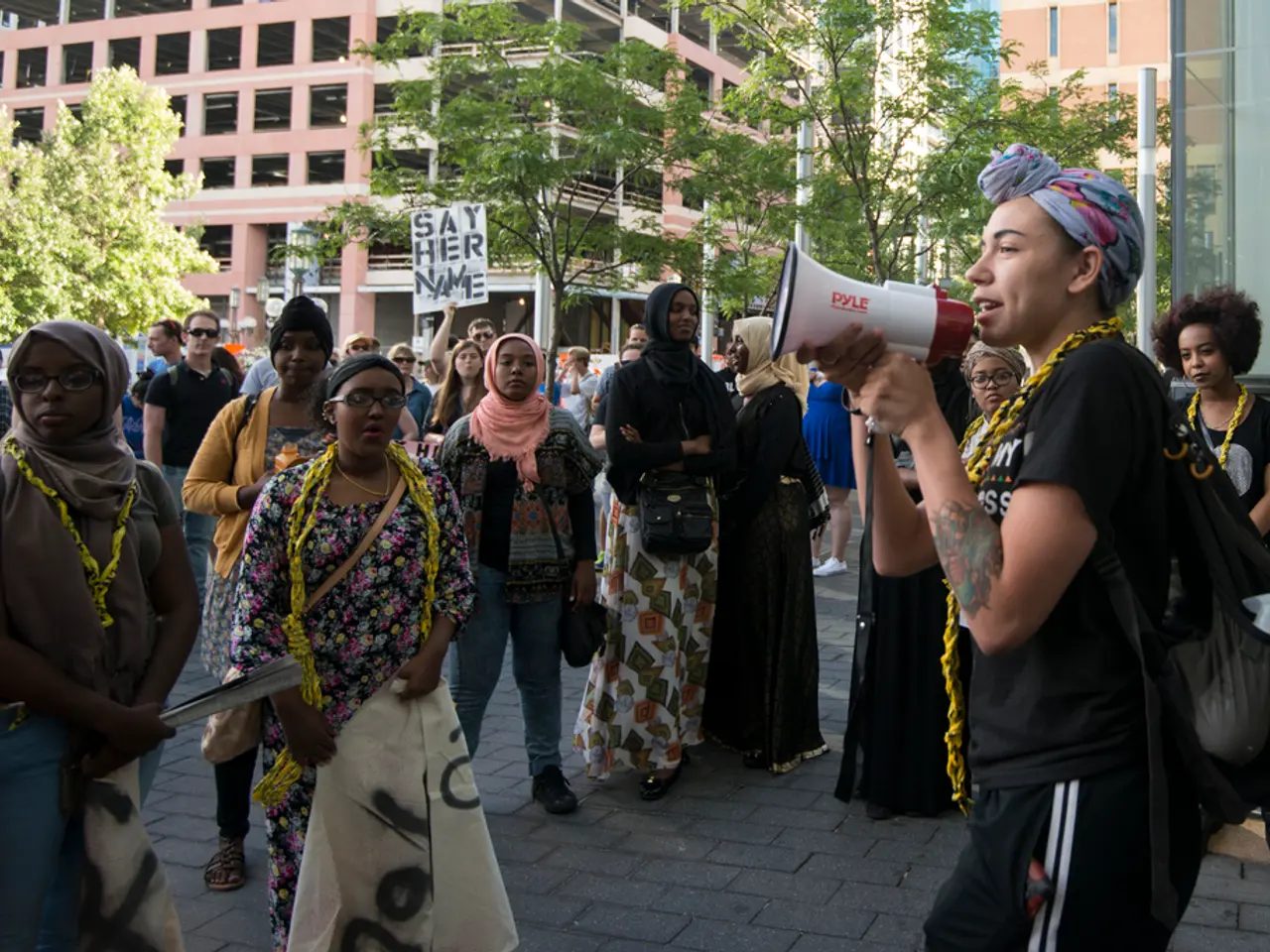Weaker's stance on gender issues softens down
In a series of bold moves, Culture Minister Wolfram Weimer has taken a firm stance against the use of gender-inclusive language in public institutions and the actions of the Alternative for Germany (AfD) party, particularly in Saxony-Anhalt.
Weimer has banned the use of gender-inclusive language in official communications from his department and advocates that no publicly funded agency should use such language. He argues that gender-inclusive language does not reflect how the majority of people in Germany speak and exacerbates societal division. The directive applies to approximately 470 employees under Weimer's control in Berlin and Bonn, mandating adherence to this language policy in their official correspondence [1][2].
Regarding the AfD, Weimer has compared the party's actions in Saxony-Anhalt to the actions of the NSDAP towards Bauhaus. He criticizes the AfD's societal political campaign in Saxony-Anhalt for resembling the NSDAP's persecution of Bauhaus designers and architects. Weimer believes it is important to highlight the AfD's actions to show the public the "horrendous, grotesque authoritarianism" behind them [3].
In contrast to some calls for a ban on the AfD, Weimer does not support such a move. Instead, he advocates for combating the AfD through convincing policy. He calls for a strong firewall on both the left and the right to keep the Left Party and AfD out of power and away from the political decision-making center of the republic [2].
It is worth noting that Weimer has since withdrawn his stance on banning public institutions from using gender-inclusive language, stating it is now a "recommendation" and not a directive. He also criticizes the AfD for wanting "a different republic," similar to the Left Party [4].
This policy and Weimer's stance on the AfD are part of a broader cultural debate in Germany about language and inclusivity, reflecting Minister Weimer's conservative approach to language use in public administration [1][2][4].
[1] The Local
[2] Deutsche Welle
[3] The Guardian
[4] BBC News
- Minister Weimer's policy to discourage the use of gender-inclusive language in public communications falls under the broader cultural debate about language and inclusivity in Germany, which is a reflection of his conservative stance on language use in public administration.
- In politics, Minister Weimer has taken a firm position against the AfD party's actions in Saxony-Anhalt, comparing them to the NSDAP's persecution of Bauhaus, and advocates for combating the party through policy rather than a ban, ultimately aiming to keep both the Left Party and the AfD out of power and away from the political decision-making center of the republic.






